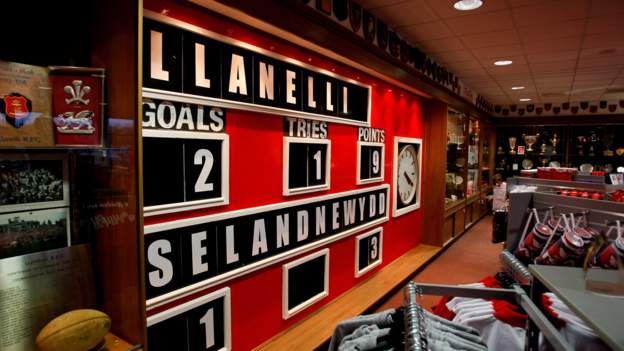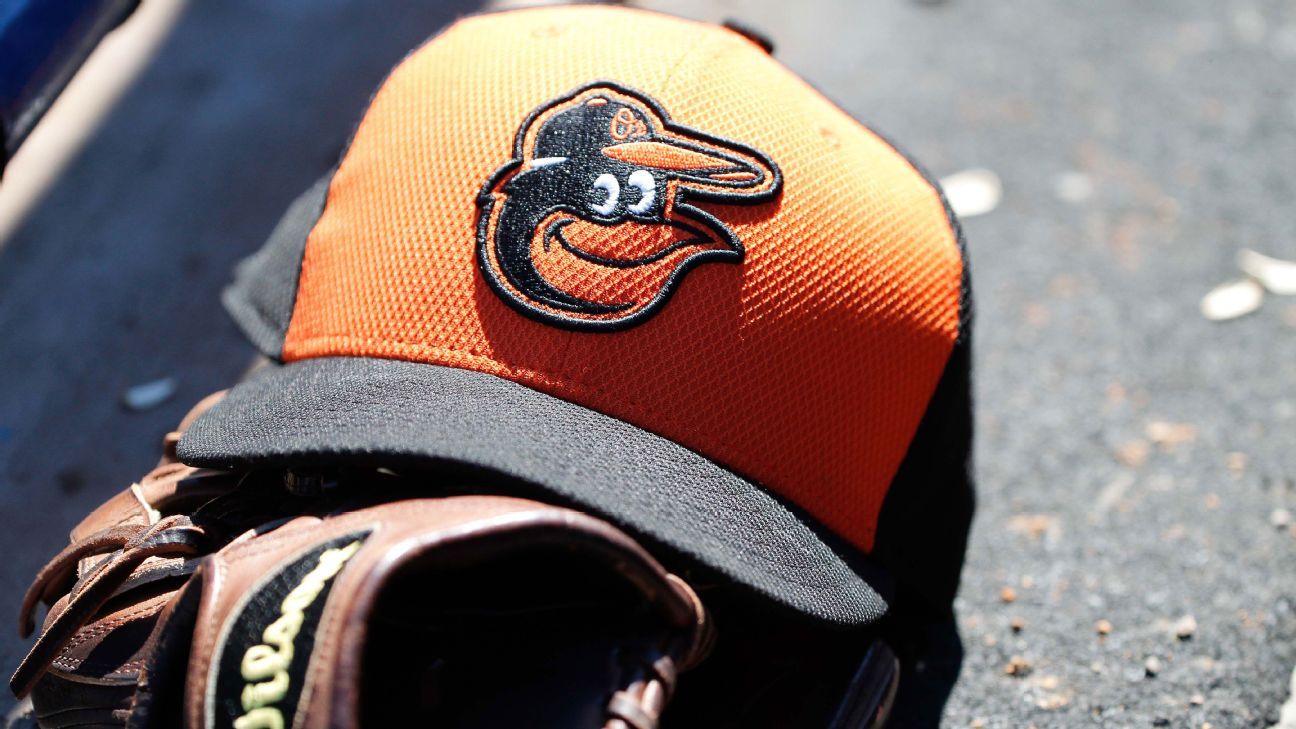
It was the day the pubs ran dry in Llanelli. That is how the Scarlets' famous victory over New Zealand was chronicled by entertainer Max Boyce in a poem titled simply '9-3'.
That was the scoreline at Stradey Park on 31 October, 1972 in one of rugby's most famous upsets.
Fifty years on, Llanelli remain the last Welsh senior side to defeat New Zealand. The Wales men's national team has not managed the feat in 32 attempts since 1953.
Llanelli are also the last club side to beat the All Blacks, with defeats for New Zealand on that tour of 1972 and 1973 coming against invitational and combined sides North-Western Counties, Midland Counties (West) and the Barbarians.
Supporters of Cardiff, Newport and Swansea will tell Llanelli fans they were late to this particular party, as those three clubs had already beaten the All Blacks. But this is the story of Llanelli's day of destiny.
The build-up
As Boyce wrote: "It was on a dark and dismal day in a week that had seen rain when all roads led to Stradey Park with the All Blacks here again."
This was the fourth game of a mammoth 32-match New Zealand tour, which lasted almost four months.
It involved a series of club, representative and international matches which yielded victories over Wales, Scotland and England, a draw with Ireland and defeat against France.
New Zealand were playing against a Llanelli side who all worked for a living in the town.
"Fifty per cent of the players worked in the steel process and others were miners, we were a working-class town," said flanker Gareth Jenkins, who would go on to become Scarlets and Wales head coach.
Those players were guided by a brilliant coach, Carwyn James, who had led the British and Irish Lions to a famous series win over New Zealand the previous year, so there was an air of expectation before the match.
Captain Delme Thomas and Derek Quinnell had been on that successful Lions tour of 1971, but Wales had still not recognised the coaching genius.
"I was pleased for Carwyn because he had been turned down by Wales and he had proved a point in New Zealand," said Thomas.
"But it was something else to try and beat the All Blacks with Llanelli. People were saying after the 1971 tour that any coach could have done well with that side.
"But you try and win a series in New Zealand. If you have done that you have achieved something.
"Everybody wanted to do well for Carwyn when we went out on the field that day."
The speech
That was the theme of what is recognised as Thomas' greatest speech to Llanelli's players before they entered Stradey Park.
His words proved inspirational.
"I just told them I was lucky enough to be on two Lions tours and had played for Wales and the Barbarians," said Thomas.
"I was willing to give it all away to win that game for Llanelli and for Carwyn that day.
"A lot of young boys, Ray Gravell and Phil Bennett, what a performance they put in on the field. So I think what I said went home to them and worked."
The crowd
"I was there" - Max Boyce's famous catchphrase, and those words applied to more than 20,000 supporters packed into the ground as factories closed early to allow workers to watch the game.
The home team had met up at the Ashburnham Hotel before travelling to the ground by bus.
"I was sat on the bus next to my pal Ray Gravell and we just could not believe how many people were about," said Jenkins.
"There were people everywhere and by the time we turned into Stradey Park itself it was overwhelmed with people. We had to have police to open the road to let us through.
"There were people everywhere in the ground. There were even people up on the pylon of the lights and the oak tree on the top end of the ground."
New Zealand were taken aback.
"The feeling was the 23,000 were right there on top of us, we didn't then normally play on rugby grounds where spectators were so close," said New Zealand fly-half Bob Burgess.
One of those in the ground was eight-year-old Mark Drakeford, who would go onto become Wales' First Minister.
"It was absolutely bursting at the seams," Drakeford told the Scrum V podcast.
"I expect I ought to have been in school that day, but a few of us decided to go together.
"At Stradey Park everyone was so close to the pitch. Everyone was standing up and right on top of the game.
"I would say the things that stick in my mind about that day are the intensity of the experience, the closeness of the crowd, the number of people crammed in together, the fantastic singing, the sheer volume of the noise and that late afternoon kick-off. It was a Tuesday afternoon and towards the end it got darker and darker.
"The sky was low, the crowd was huge and the memory remains vivid in my mind."
The try
When the match got under way it took less than two minutes for Llanelli to stun their visitors.
Bennett had an early chance to claim the lead only to see his penalty kick bounce off the crossbar.
As All Black scrum-half Lindsey Colling gathered the rebound, it seemed that the scoring chance had gone.
But as Colling shaped to clear to touch, centre Roy Bergiers raced in from the Llanelli midfield to charge down the kick and dived on the loose ball for a try.
"I put my hands up and hit it," said Bergiers.
"I think I tripped over the line through the gap and then there was the ball and I just pounced on it.
"You don't realise you are part of history until years later."
Bennett converted to hand Llanelli a shock 6-0 lead, but when Joe Karam struck a penalty to give New Zealand their first points, it seemed only a matter of time before more followed.
However, the Scarlets dug in - with the scars to prove it - and held out heroically before Hill struck a huge penalty to keep New Zealand at arm's length and send the town wild.
"Rugby is very good for telling children about relatively, as the last five minutes always last longer than the first five minutes in a game where you are hanging on, trying to win," added Drakeford.
"This game was very much that sort of game. Ending with Llanelli hanging on and hanging on, every minute seemed to last forever."
The achievement
The final whistle brought remarkable scenes.
"Everybody who was around the ground arrived on the field at the same time," said Jenkins.
"It was chaos. The excitement and shared emotion of everybody was overwhelming and it took me about 10 minutes to get to the changing room.
"You pretty quickly realised it was history-making but had not perhaps realised yet the enormity of what we had achieved. It has to be the greatest moment of my career."
Delme Thomas had been part of the successful Lions side in New Zealand, won a Grand Slam in 1971 and played 25 internationals for Wales. This day eclipsed everything for the Scarlets skipper.
"It was the proudest day of my life to have led Llanelli to victory over the All Blacks," said Thomas.
"I was so pleased for myself, for the team, and especially for Carwyn. I felt for him that he was turned down by his country and he proved on that day what a wonderful coach he was.
"That day has brought me more joy than anything else I have achieved in rugby. I am biased because I am a Llanelli boy, but to me it meant everything and it meant everything to the town.
"Even now, in a little caravan down in Amroth where I spend my weekends, people come up and tap me on my back.
"That is all they will say, I was there, and you know exactly what they mean.
"I have had a wonderful career and the success of beating the All Blacks was everything."
Drakeford added: "I've been lucky to be at lots of sporting events where the atmosphere was special, but that day was right up there."
There will be a dinner this week to mark the occasion, though some heroes of the day will be missing.
Legends like Phil Bennett, JJ Williams, Ray Gravell and Hefin Jenkins are sadly not here to celebrate the victory after passing away in recent years.
'Grav' died on the 35th anniversary of the game in 2007, JJ Williams passed away almost exactly two years ago while the loss of former Wales fly-half Bennett, affectionately know as Benny, is especially raw following his death in June this year.
The legacy
Current Scarlets head coach Dwayne Peel's grandfather Bert was Llanelli's physio that day.
"Growing up we had the photo in the house and I still have the programme from the game," said Peel.
"It still resonates. Growing up in this part of the world, it is never not spoken about and it's constantly there.
"It is a big part of our culture and history, not just rugby history, but the history of Llanelli and Carmarthenshire.
"The picture of the 1972 side is up in our changing rooms and team rooms.
"We have a big picture of Benny up in the gym and that generation can't be forgotten because of their achievements.
"I hope the young guys see that as well, because it was relevant when I played so it's important they understand that."
Can Wales follow Scarlets' suit?
Wales head coach Wayne Pivac was Scarlets coach for five seasons before taking over the national side from fellow New Zealander Warren Gatland in 2019.
"I was 10 and we often listened to All Blacks games on the radio. That game I distinctly remember," said Pivac.
"The name Llanelli stuck in my mind and luckily enough I got to coach the Scarlets and was reminded of it pretty much on a daily basis when I first arrived.
"It was the sort of game in those days the All Blacks just didn't lose, so for me as a 10-year-old, it was quite upsetting."
Five days after the 50th anniversary, Pivac will have the chance of leading Wales to victory over his native New Zealand and ending 69 years of hurt for the national side.
Potential history awaits in Cardiff for the Wales class of 2022, just as it did for those Llanelli heroes half a century ago.
Llanelli: Roger Davies; JJ Williams, Roy Bergiers, Ray Gravell, Andy Hill; Phil Bennett, Chico Hopkins; Tony Crocker, Roy Thomas, Barry Llewellyn, Delme Thomas (capt), Derek Quinnell, Tommy David, Hefin Jenkins, Gareth Jenkins.
Replacements: Selwyn Williams, Alan James, Chris Charles, Brian Llewellyn, Gwyn Ashby, Meirion Davies.
New Zealand: Joe Karam; Bryan Williams, Bruce Robertson, Mark Sayers, Duncan Hales; Bob Burgess, Lindsey Colling; Keith Murdoch, Ron Urlich, Graham Whiting, Andy Haden, Pole Whiting, Alistair Scown, Alan Sutherland, Ian Kirkpatrick (capt).
Replacement: Grant Batty.















 Phone: (800) 737. 6040
Phone: (800) 737. 6040 Fax: (800) 825 5558
Fax: (800) 825 5558 Website:
Website:  Email:
Email: 






